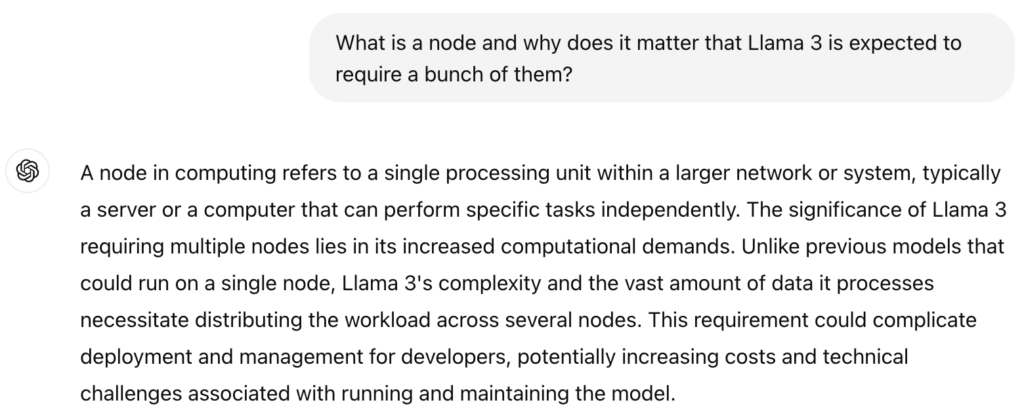Welcome to the newest edition of FindBiometrics’ AI update. Here’s the latest big news on the shifting landscape of AI and identity technology:

TSMC posted a 36 percent increase in net profits for the second quarter, beating expectations. The growth is being propelled by AI demand, with the Taiwan-based semiconductor maker’s AI-focused chipmaking division accounting for over half of its revenues.
Meta’s Llama 3 Large Language Model will launch on July 23. It’s a free, open source model with 405 billion parameters (versus, for example, GPT-4’s one trillion-plus parameters). But whereas the previous open-source models could be run on a single node, Llama 3 might require multiple nodes, which could be a headache for developers.
OpenAI is in talks with Broadcom about making a new AI chip. The company wants to reduce its reliance on third party chipmakers like Nvidia, and has been hiring former Google employees with previous experience working on the latter’s tensor processing unit.
OpenAI’s management believe the company is on the cusp of the second level of a five-tier scale leading to superhuman intelligence. It’s already at the first level – offering conversational chatbots – and the next “Reasoners” level will produce AI that can perform problem-solving tasks as well as a human with a doctorate degree.
The United Kingdom’s antitrust regulator has officially launched an investigation into Microsoft over its hiring of staff from the startup Inflection AI. Microsoft had participated in a $1.3 billion funding round for Inflection last year, and went on to hire several senior staffers including its CEO, and to license its technology. Microsoft insists that this is not a merger.
The Cyberspace Administration of China (CAC) has compelled several domestic AI companies to participate in a government review intended to ensure that their AI systems “embody core socialist values”. The reviews revolve around subjecting AI systems to various prompts, and flagging responses deemed inappropriate. One AI company representative told the FT that getting their AI model up to spec took “a bit of guessing and adjusting.”
Famous Stanford AI researcher Fei-Fei Li has made a billion-dollar AI startup in about four months. She launched World Labs in April and has already conducted two funding rounds. The startup aims to develop a “spatial intelligence” system that can process visual data.
Reality Defender has teamed up with ElevenLabs, which specializes in voice cloning technology. The latter’s expertise will be applied to Reality Defender’s deepfake detection engine, enhancing its ability to flag synthetic voices in audio media.
Tinder has revealed a new AI tool that will find users’ hottest selfie photos. Interested users must submit a selfie image and allow the system to scan through their photo gallery. The theory is that AI will find the best photo to attract matches on the dating platform.
The chatbot’s take: We asked for a little bit of an explainer about Llama 3’s potential node problem.

–
July 19, 2024 – by Alex Perala








Follow Us